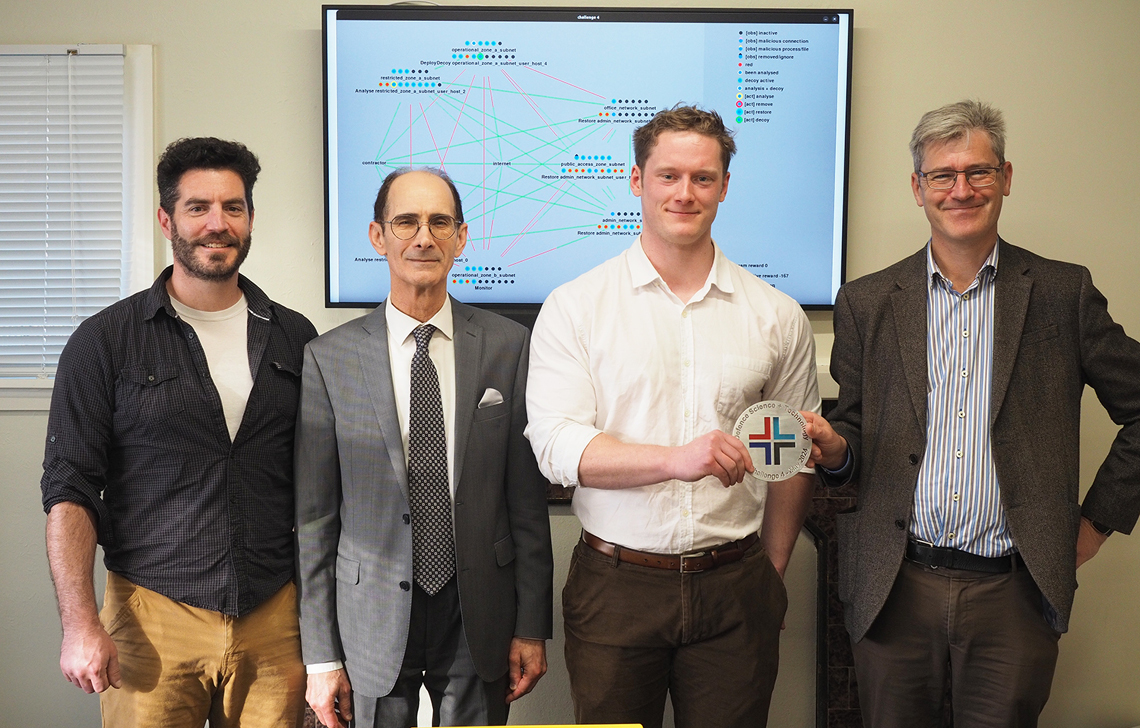
15 MAY 2024 | COLLABORATION
The Wireless Research Centre (WRC) of the University of Canterbury (UoC) has WON the Cyber-Autonomy-Gym-for-Experimentation (CAGE), Challenge 4.
Overview
Over the past three years Five Eyes Science and Technology (FVEY S&T), formerly called TTCP, has run Cyber-Autonomy-Gym-for-Experimentation (CAGE) Challenges. These are a series of international cybersecurity competitions designed to engage AI researchers with problems in Autonomous Cyber Defence. Autonomous cybersecurity is the automation of an organisation’s cyber defence capabilities and the ability to adapt and respond in real time.
Why did FVEY S&T create these challenges
To support network defences and speed up response times, security organisations are increasingly looking to autonomous systems. Accordingly, FVEY S&T have set themselves a goal to turn/develop Autonomous Cyber Operations into an operational capability which currently they are not but are able to become.
In order to meet this goal FVEY released a set of hypothetical scenarios in the form of the so-called challenges of increasing complexity for industry and academia to respond to through implementation of AI/ML techniques as cyber defensive agents.
The Challenge
Teams are presented with different cybersecurity scenarios inspired by real-world situations in a simulated environment, and provide a high fidelity cyber simulation for training and evaluation of AI algorithms. Challenge 4 continues on from the first three challenges in asking the participants to implement defensive AI/ML algorithms to protect the infrastructure of the blue nation from the cyber attacks of the red nation.
Outcome
Defence Science and Technology’s (DST) financial contribution and guidance was instrumental in the UoC’s Wireless Research team winning Challenge 4. The highly collaborative team won this Challenge by creating their own AI/ML cyber defensive agents that were then graded by the automated evaluation system against the pre-set criteria
